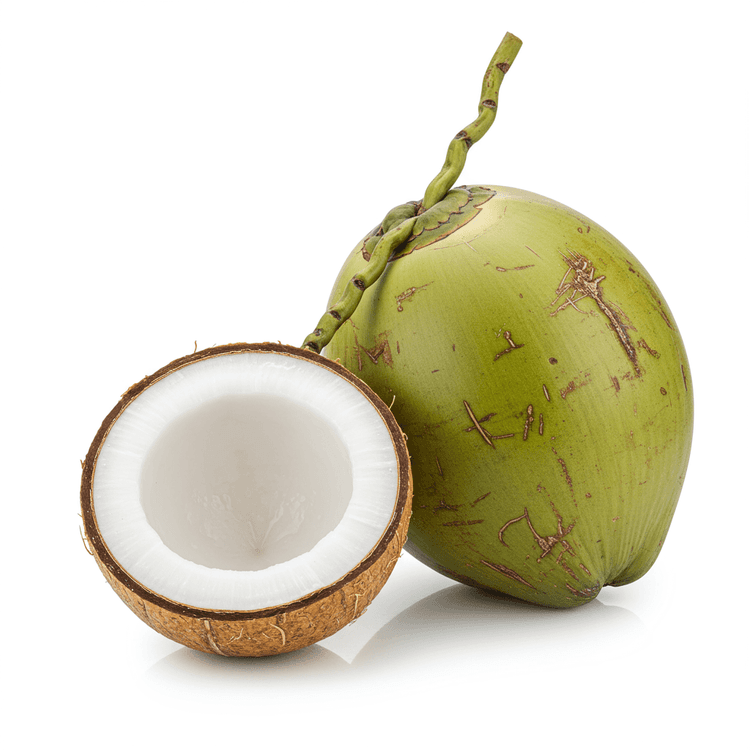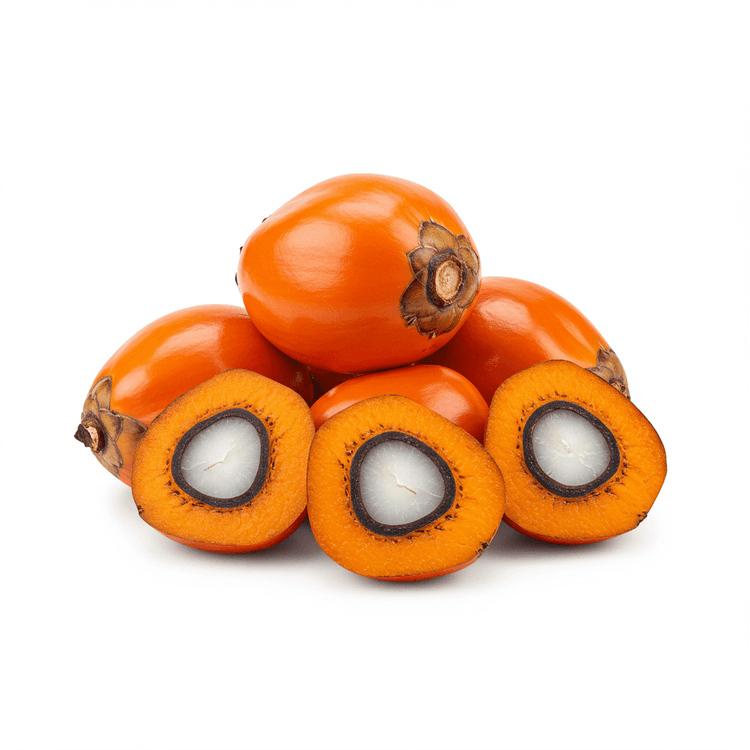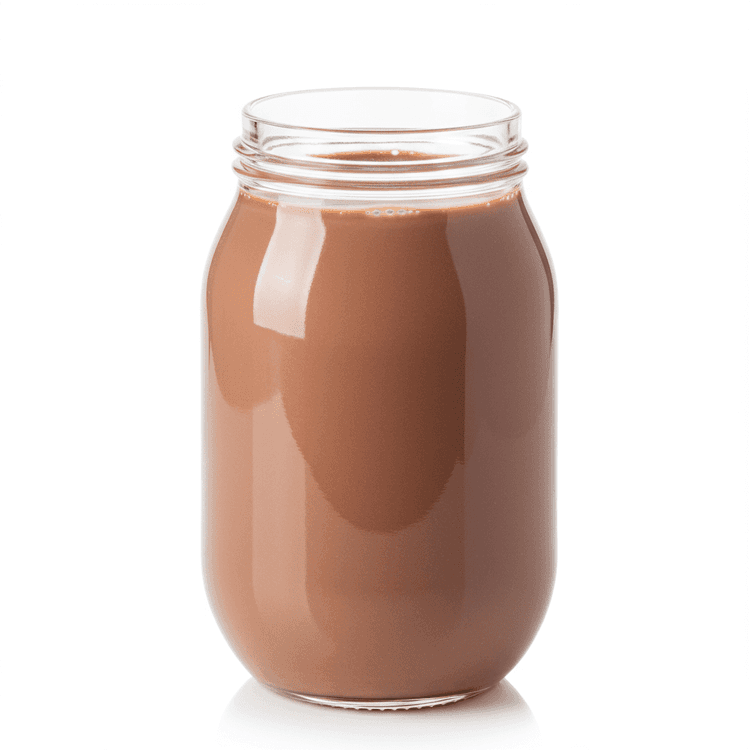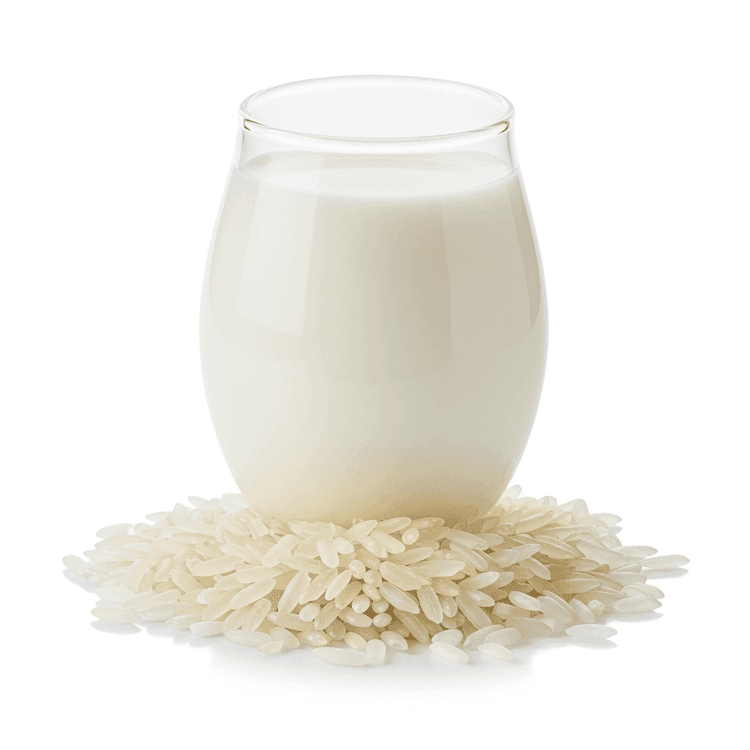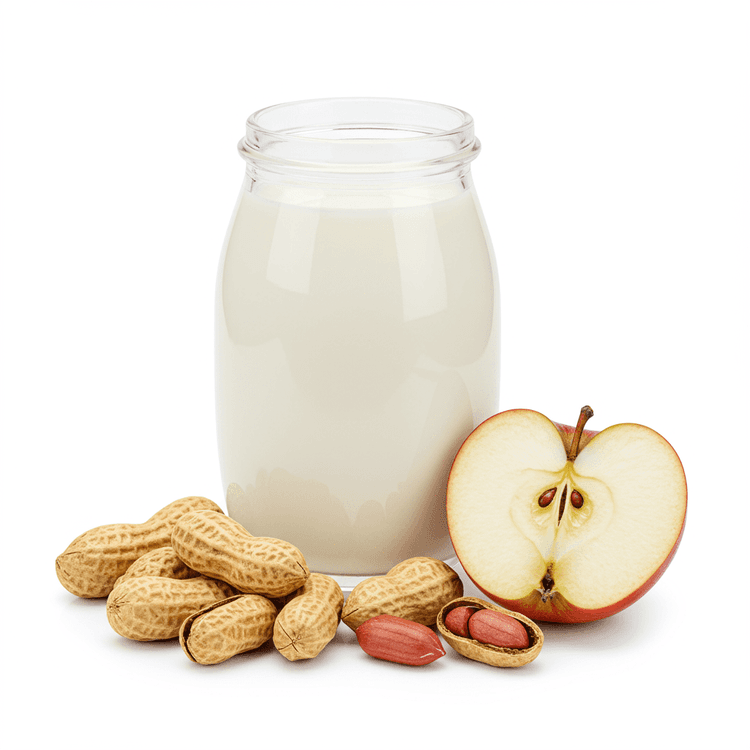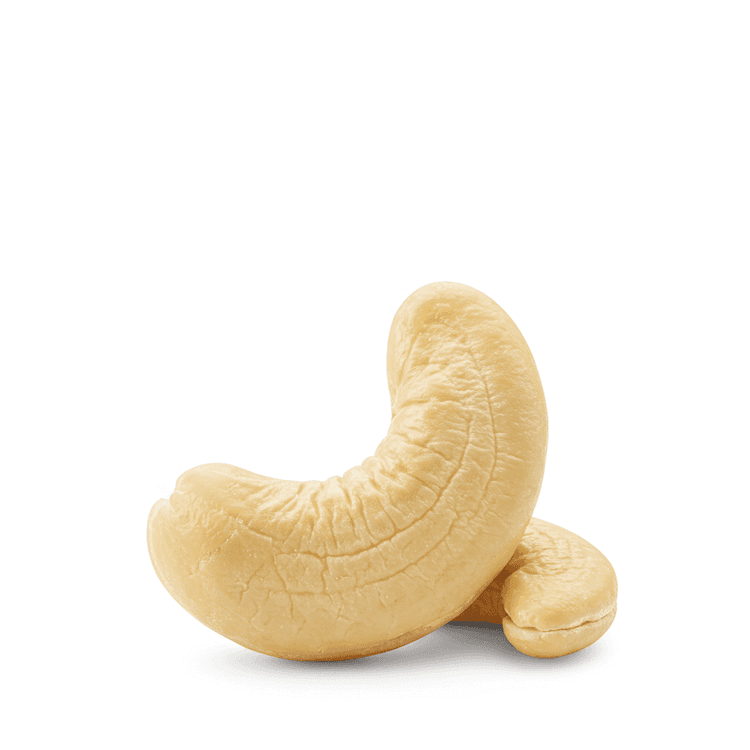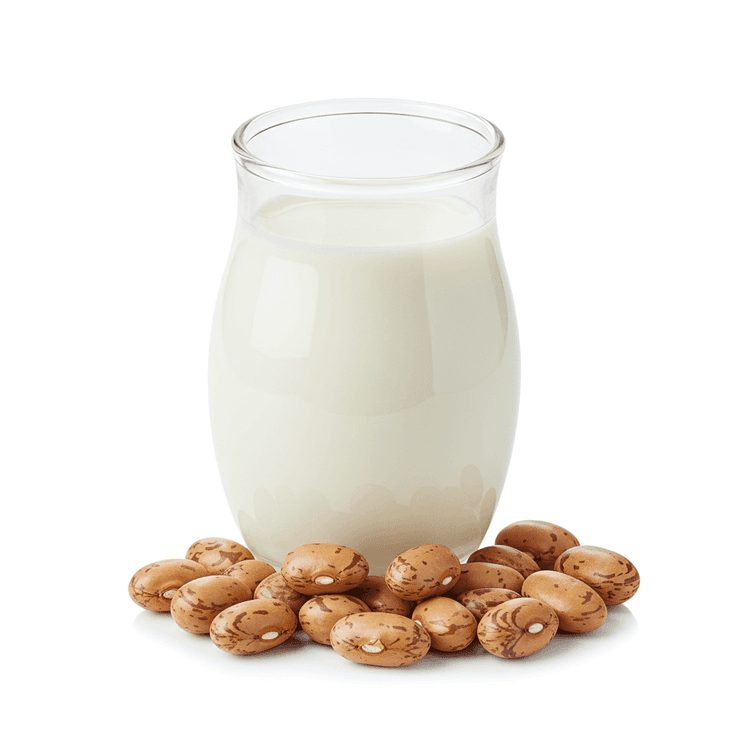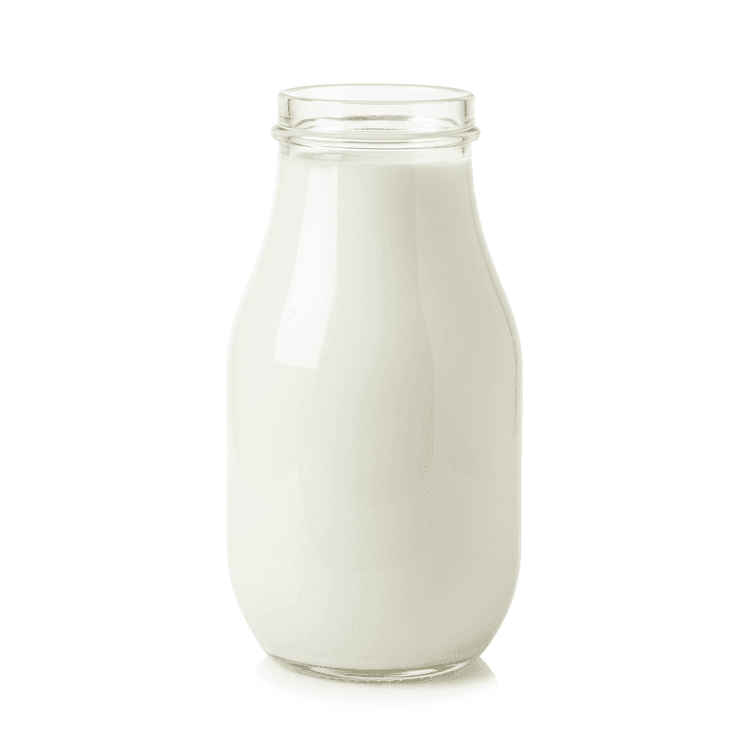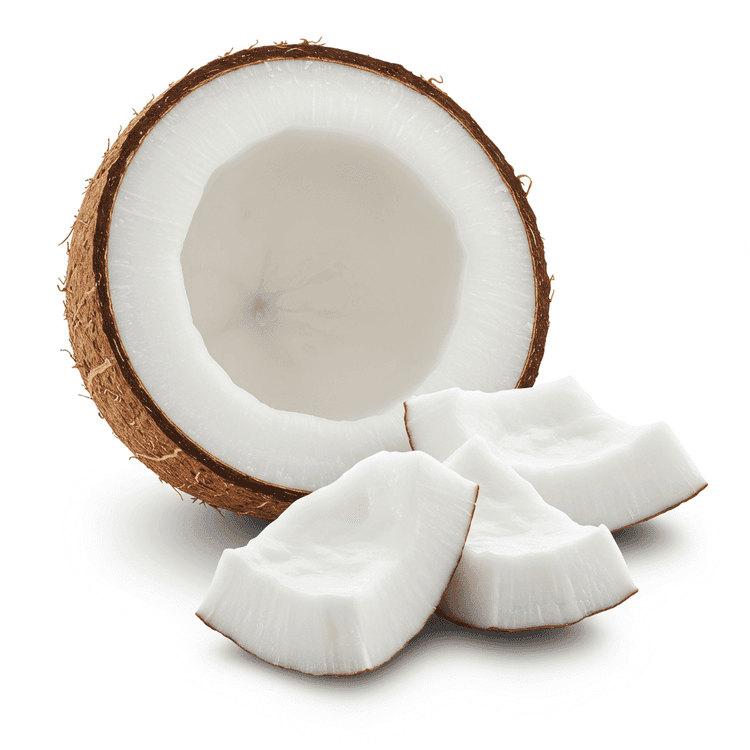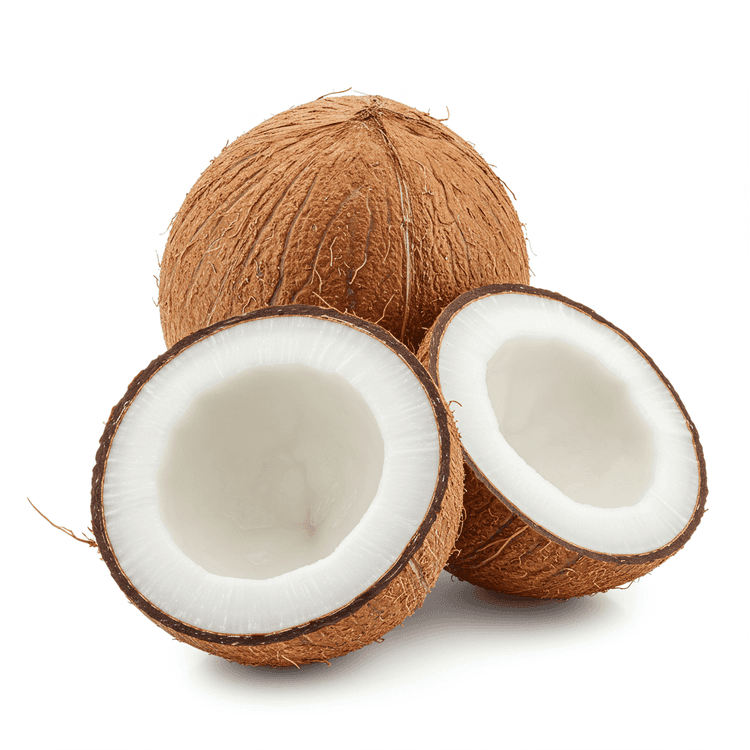
Coconut Milk
Coconut milk is a creamy, opaque liquid extracted from the grated flesh of mature coconuts. It's prized for its rich, subtly sweet flavor and smooth, velvety texture. Often used as a dairy-free alternative, coconut milk adds body and richness to dishes. It's a versatile ingredient, available in various fat contents, from thick coconut cream to thinner coconut milk, making it suitable for both sweet and savory applications. When looking for non-dairy milk alternatives for cooking and baking, coconut milk is an excellent choice due to its unique flavor profile and ability to impart moisture and richness.
Common Uses
- Coconut milk is frequently used to create flavorful curries, adding a creamy texture and a subtle sweetness that balances spicy ingredients. - It serves as a delicious base for soups and stews, lending richness and depth of flavor, particularly in Southeast Asian cuisine. - Coconut milk is an ideal dairy-free substitute in baking, adding moisture and a delicate coconut flavor to cakes, cookies, and other desserts. - You can use it to make smoothies or creamy beverages, providing a tropical twist and a luscious texture without the need for dairy. - Coconut milk is great in vegan ice cream and desserts, imparting a creamy richness that mimics traditional dairy-based recipes. - It can be whipped into a light and airy topping or dessert, offering a vegan alternative to whipped cream when chilled and separated.
Nutrition (per serving)
Nutrition (per serving)
Calories
198.0kcal (9.9%)
Protein
2.0g (4%)
Carbs
3.0g (1.09%)
Sugars
2.0g (4%)
Healthy Fat
1.0g
Unhealthy Fat
17.0g
% Daily Value based on a 2000 calorie diet
Nutrition (per serving)
Calories
198.0kcal (9.9%)
Protein
2.0g (4%)
Carbs
3.0g (1.09%)
Sugars
2.0g (4%)
Healthy Fat
1.0g
Unhealthy Fat
17.0g
% Daily Value based on a 2000 calorie diet
Health Benefits
- Rich in healthy fats, particularly medium-chain triglycerides (MCTs), which may support weight management.
- May improve cholesterol levels by increasing HDL (good) cholesterol.
- Good source of electrolytes like potassium, supporting hydration and muscle function.
- Contains antioxidants that can help protect against cell damage and reduce inflammation.
- May promote gut health due to its potential prebiotic effects.
- Dairy-free and lactose-free alternative, suitable for those with lactose intolerance.
Substitutes
Chefadora AI is here.
Experience smarter, stress-free cooking.
Storage Tips
Unopened canned coconut milk should be stored in a cool, dark, and dry place at room temperature for optimal shelf life. Once opened, transfer any unused portion to an airtight container and refrigerate immediately. Use refrigerated coconut milk within 3-4 days. Coconut milk can also be frozen for longer storage; however, the texture may change upon thawing, so it's best used in cooked dishes rather than as a beverage.
Marnirni-apinthi Building, Lot Fourteen,
North Terrace, Adelaide, South Australia, 5000
Australia
